Education in Italy: Nothing worth Teaching can be Taught?
In Education in Italy part one I’ll describe the decline of the Italian Education system since the beginning of the new century and the birth of the scuola/azienda, of the student/customer and of the consumers’ school, with its parallel downgrading of the role of teachers and students.
- Is it still possible to teach the new generation?
- Is it tout court true that nothing worth knowing can be taught, as Oscar Wilde wrote, especially nowadays?
- Or shall we say that nothing worth teaching can be taught?
- Are we all forced to play a giant pantomime in today’s classrooms?
The school as enterprise and the student as customer: the collapse of School and Education
It is a cloudy September Sunday morning in Sassuolo, a small town well-known for its tile manufacturing factories in the province of Modena (my hometown), one of the Emilia-Romagna settlements that nowadays form a huge metropolitan area in north of the country that looks like a unique megacity running from the Apennine Mountains to the Adriatic Sea. It is an industrial area with an artistic soul, where important cultural events take place regularly. In fact, I am listening to the lectio magistralis on adolescence of the famed philosopher Umberto Galimberti, a Mephistophelean orator whose unconventional views on contemporary Western Christian society have always fascinated me. His lecture is part of the Festival della Filosofia that takes place every year in this area. For three days the bordering towns of Modena, Sassuolo and Carpi turn into a utopia: a flood of spectators moves from one place to another to listen to the best minds of our generation, debating the main issues of the contemporary world, as if they were rock stars. The event is so packed that when the summer shower starts I cannot find shelter and I have to stand in the rain that seems to be an omen to what the speaker is saying. The philosopher is talking about the importance of reading literature at school ‘with the spirit of Humanism’. Adolescence is the period in which emotions and personality are formed and it is in literature that these emotions are heard and recognized; it is therefore literature that helps the teenager to fully develop them. But here is the rub, I think to myself, as I recall the days in which I could read the masterpieces of literature in English in my classes to students that were still used to reading at home both because it was their homework – and their moral duty – and for pleasure. That was before the school became an enterprise, the student turned into a customer and the whole system collapsed leaving me lonely, filled with a sense of frustration for not having the opportunity to go on doing what I had done up to then, a chance that gives sense to my profession. Since then, the feeling of playing a pantomime has always accompanied me in my line of work, and today’s rain is indeed an objective correlative to my feelings. It all began in the winter of 1998, while I was writing my first novel in a lonesome guesthouse room in another small town, Salisbury, in the heart of the English countryside.
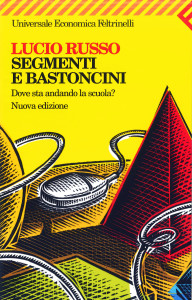 In that year Lucio Russo, a professor of physics at Tor Vergata University in Rome, wrote a pamphlet titled Segmenti e bastoncini, dove sta andando la scuola? (Feltrinelli Publisher, 2000) in which he stated that the newly passed bill on Education [la Riforma Berlinguer] was the coherent and organic project to demolish what is left of the traditional Italian “scuola superiore”, replacing it with a modern “customers’ school” whose function, following the model of the American mass school system, is to start the student/customer off on consumption offering him standardized discredited products that are also reassuring and pleasant (si tratta del progetto, coerente e organico, di smantellare quanto resta della tradizionale scuola secondaria superiore italiana, sostituendola con una moderna “scuola per consumatori” che, seguendo il modello della scuola americana di massa, si limiti ad avviare al consumo il cliente-studente fornendogli prodotti massificati e dequalificanti, ma gradevoli e rassicuranti). This quote is a snapshot of that reform which was the turning point in school education, paradoxically approved by the new centre-left government led by Romano Prodi, an economist and university teacher nicknamed ‘il professore’. From that day on, the school system would adopt the rules of the ‘market’ in a blind acceptance that the only existing thought in the freshly globalized world would modernize the traditional school system that we had known in our schooldays.
In that year Lucio Russo, a professor of physics at Tor Vergata University in Rome, wrote a pamphlet titled Segmenti e bastoncini, dove sta andando la scuola? (Feltrinelli Publisher, 2000) in which he stated that the newly passed bill on Education [la Riforma Berlinguer] was the coherent and organic project to demolish what is left of the traditional Italian “scuola superiore”, replacing it with a modern “customers’ school” whose function, following the model of the American mass school system, is to start the student/customer off on consumption offering him standardized discredited products that are also reassuring and pleasant (si tratta del progetto, coerente e organico, di smantellare quanto resta della tradizionale scuola secondaria superiore italiana, sostituendola con una moderna “scuola per consumatori” che, seguendo il modello della scuola americana di massa, si limiti ad avviare al consumo il cliente-studente fornendogli prodotti massificati e dequalificanti, ma gradevoli e rassicuranti). This quote is a snapshot of that reform which was the turning point in school education, paradoxically approved by the new centre-left government led by Romano Prodi, an economist and university teacher nicknamed ‘il professore’. From that day on, the school system would adopt the rules of the ‘market’ in a blind acceptance that the only existing thought in the freshly globalized world would modernize the traditional school system that we had known in our schooldays.
The old scuola superiore (secondary school/high school) was made for the highest social classes and formed executives and technicians of high profile; it was therefore meant for the elite and indeed a change was needed to give equal opportunities to everyone, regardless of his social origins. This new model was called scuola di massa but the traditional left was not able to see that the democratic process of offering a fundamental service to all the population could not be obtained by embracing the market rules of competition, profit and efficiency in productive terms. That would guarantee most of the students a diploma but the quality of education would become very poor and bound to create not a free thinker, endeavoured of free will, but a potential customer ready to satisfy the rules of the globalized consumerist society:
Above all the new school system must prepare consumers that can ignore the productive processes and, furthermore, renounce every kind of general culture. A school system with the function to initiate to consumption must differ from the old model of school deeply… it is obvious that it must be a mass school … but to qualify it as ‘democratic’ requires a good quantity of optimism… it won’t require intellectual efforts considered fatiguing, superfluous and maybe dangerous… of course a consumers’ school does not need teachers with particular specific competence, since contents are largely interchangeable, as it usually happens in the United States where almost all subjects are optional.
Il Professor Bingo and The Brotherhood of the Resistance Fighters: teachers as authors against the new mass school for consumers
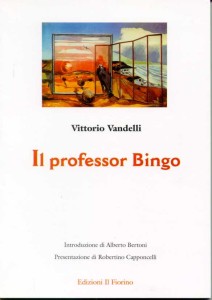 In the days before the Riforma Berlinguer we used to take our students to UK schools of English for three weeks during the school period. There was little extra money for teachers who voluntarily accepted to work overtime organizing the stage and taking their pupils to the UK, accepting all the civil and criminal legal responsibilities of being in charge of underage people. In 2010 the Riforma Gelmini cancelled all the bonuses but most teachers kept on working overtime for free, showing an almost religious interpretation of their job as ‘mission’, demonstrating an excellent human disposition but also a very negative attitude as far as professionalism is concerned. In those cold 1998 February mornings, while the pupils were at school, I had a kind of epiphany that led me to write Il Professor Bingo, the first novel in a series that stars the same protagonist. In that narrative, both dramatic and ironic, prof. Bingo does not accept il nuovo che avanza and he feels trapped in a deranged institution which is a metaphor of the advancing neo-con globalized society. My alter-ego prefers going to jail instead of accepting the new rules of the scuola-azinenda, becoming an antihero who paradoxically finds more freedom in prison that in the contemporary imposed lifestyle. Retrospectively, it is now easy to see that my novel was the counterpart of professor Russo’s pamphlet. By word of mouth, in those pre-internet days, the book became immediately quite popular since it gave voice to the discomfort of many colleagues who felt the way I – and prof. Bingo – felt. In the following years, a group of teachers started to feel the need to write about education almost simultaneously, an urgency that had never been felt before, in the days in which we could go to school and have our classes without the fear to find our students engaged in a self-esteem or a street education course or in some other extravagant project, that has nothing to do with education, listed in the Piano della Offerta Formativa (a kind of chart of the subsidiary services each school offers its clients, a sort of publicity catalogue used by each institution to attract customers, and therefore get more money, either from the State or from private businesses, and to get a much needed notoriety). Those teachers/authors were inspired by D. Starnone’s 1987 satirical novel Ex Cattedra, a cult-book that launched Starnone, a teacher of Italian, into mainstream literature. These writers were later nicknamed La Confraternita dei Resistenti – The Brotherhood of the Resistance Fighters – in an anthology of their works, Il Dodecalogo, I edited in 2008 for the first – and last – nationwide convention of teachers/authors that I organized on behalf of the GILDA degli Insegnanti, a professional association and a teachers’ union.
In the days before the Riforma Berlinguer we used to take our students to UK schools of English for three weeks during the school period. There was little extra money for teachers who voluntarily accepted to work overtime organizing the stage and taking their pupils to the UK, accepting all the civil and criminal legal responsibilities of being in charge of underage people. In 2010 the Riforma Gelmini cancelled all the bonuses but most teachers kept on working overtime for free, showing an almost religious interpretation of their job as ‘mission’, demonstrating an excellent human disposition but also a very negative attitude as far as professionalism is concerned. In those cold 1998 February mornings, while the pupils were at school, I had a kind of epiphany that led me to write Il Professor Bingo, the first novel in a series that stars the same protagonist. In that narrative, both dramatic and ironic, prof. Bingo does not accept il nuovo che avanza and he feels trapped in a deranged institution which is a metaphor of the advancing neo-con globalized society. My alter-ego prefers going to jail instead of accepting the new rules of the scuola-azinenda, becoming an antihero who paradoxically finds more freedom in prison that in the contemporary imposed lifestyle. Retrospectively, it is now easy to see that my novel was the counterpart of professor Russo’s pamphlet. By word of mouth, in those pre-internet days, the book became immediately quite popular since it gave voice to the discomfort of many colleagues who felt the way I – and prof. Bingo – felt. In the following years, a group of teachers started to feel the need to write about education almost simultaneously, an urgency that had never been felt before, in the days in which we could go to school and have our classes without the fear to find our students engaged in a self-esteem or a street education course or in some other extravagant project, that has nothing to do with education, listed in the Piano della Offerta Formativa (a kind of chart of the subsidiary services each school offers its clients, a sort of publicity catalogue used by each institution to attract customers, and therefore get more money, either from the State or from private businesses, and to get a much needed notoriety). Those teachers/authors were inspired by D. Starnone’s 1987 satirical novel Ex Cattedra, a cult-book that launched Starnone, a teacher of Italian, into mainstream literature. These writers were later nicknamed La Confraternita dei Resistenti – The Brotherhood of the Resistance Fighters – in an anthology of their works, Il Dodecalogo, I edited in 2008 for the first – and last – nationwide convention of teachers/authors that I organized on behalf of the GILDA degli Insegnanti, a professional association and a teachers’ union.
The final victory of pensiero unico
Embracing the methods, the procedures, the philosophy of the economic market was truly believed as the only way to update the educational system, to tune it to the modern global village. The blinding light of the market rules to create a modern useful mass school system hit progressive thinkers and politicians of the entire spectrum; it is also symbolic of the final victory of what today we call pensiero unico, the only existing thought. Once the road was opened, it did not really matter who governed the country, as far as education is concerned but also generally speaking. The so called ‘centre-left’, in its anxiety to forget its dangerous past, hurried to embrace the conservative traditional views in its vain attempt to gain credit in the eyes of the moderate voters, Tony Blair style. The various Ministers of Education have followed a straight line up to now, a pattern which has slowly sickened the world of education and culture and has led to the present sad state of the art and to the poor public consideration of our once brilliant, if class oriented, State school. Each government thereafter passed its own Education Reform as a distinctive trait of its mandate, giving out the false idea of changing the former government’s direction. After the Riforma Berlinguer many others followed, but the two topical moments were Berlusconi’s 2010 Riforma Gelmini and the newly approved La Buona Scuola by Renzi’s cabinet. There is really nothing buono in either of them, as I explain in the follow-up post entitled Education in Italy, part 2.
The downgrading of the teacher: a tale told by an idiot, full of sound and fury
All the headmaster/manager can do is to tolerate the teacher of great didactic and cultural value as a fine ornament, decorative of the school’s image writes P. Mazzocchini in his pamphlet Studenti nel Paese dei Balocchi (Students in the Dreamland – Arcane Publisher, 2007), an exhaustive ironic portrait of the contemporary scuola-azienda (Preside – Headmaster – is now called Dirigente Scolastico in contemporary Education’s brand new language, as in the U.K. nowadays we use the word Headteacher in order not to discriminate). The quote in itself explains the feelings of frustration and of taking part in a pantomime I mention in the beginning. Our ‘brave new school’ for future consumers does not need a teacher with specific competences since his traditional role is taken over by the new multimedia didactic technology, centralized and impersonal. The ‘brave new teacher’ must be a generic ‘school operator’ with a basic socio-pedagogic knowledge, since its new role is that of entertainer and animator helping pupils to socialize and guiding them in the fruition of the media. Besides, the ‘brave new teacher’ must spend most of his time in planning and executing a series of ‘projects’ of all kinds (as I said before) which has nothing to do with proper education but that is useful to make each school attractive, in order to be a magnet for as many customers as possible. A learned teacher might also be firm in his demands and accurate in marking, and this is a danger to be avoided at all costs: the new school tries to guarantee every pupil success, regardless of his potential, his engagement and motivation, for obvious commercial motives. Selecting ‘brave new students’ does not make more sense than selecting the clients of a supermarket: the student/customer enters the school/supermarket, acquires the products he likes (for free if it is a State school) and has the unalienable right to ‘exit’ satisfied; if not, the blame is to be put on the teacher/manufacturer. The downgrading of the teacher to social operator means the impossibility for him to do his work, a fact that goes together with his loss of social prestige and salary. Even the choice of the educational cultural guidelines and the making of the school curricula are now made by sociologists, pedagogists and media experts, while men of letters, mathematicians or philosophers are out of the game. In the end, the good teacher is the victim of the school/enterprise in which all the headmaster’s efforts are directed to increasing the number of pupils enrolled. According to the logic of profit, the more the clients, the more money his school receives from the Ministry or private sponsors. Since every State school is an autonomous unit, the search for sponsors means competition with the other schools, it means advertising campaigns to improve the ‘image’ of the school based on the promise of much socialization and little studying. In the end, this system has caused the explosion of the burn out syndrome, the dramatic increase in the psychiatric pathologies in teachers… out, out, brief candle, today’s school is a tale told by an idiot, full of sound and fury…
The newly approved reform of education by Renzi’s government, ironically called La Buona Scuola, carries on the Berlinguer/Gelmini guidelines. Once again, it is a homage to the ideology of the scuola/azienda and to an idea of society that reminds the fascist scheme of pyramidal control, a legacy Italian society has never been able to get rid of. Besides, La Buona Scuola has pushed its luck a bit further by introducing the idea of the teacher/consumer that springs from the logic of putting an end to the national contracts (the last one was signed in 2008) and introducing bonuses for the teachers who deserve it, the ones who ‘obey’, who are willing to absolve all the collateral ‘school management’ functions the headmaster/manager is giving out, and consequently be rewarded by the boss. All this simply means following the Confindustria’s ideological line: besides the ‘merit bonus’ there is also a 500-euro-a-year bonus for every teacher who must spend it compulsorily (Confindustria is the industrialists’ association). The teacher/consumer must spend this amount in technology, in tools like books or films or in taking part in compulsory corsi di aggiornamento – updating courses -, a lucrative business allegedly based on the all-Italian bribe system and of depressing cultural content. Now teachers too proudly contribute to the circulation of money and to the rise of consumption goods, one of the basic market principles to make post-crisis economy grow again: put down your books and pick up your credit card / we’re gonna have a whole lotta fun.
The knock-out blow to our profession has been dealt by the disappearance of the pension scheme, whose deadline has kept on rising higher and higher throughout the Berlusconi’s era until finally vanishing into thin air. In fact, the State has gradually increased retirement age, unilaterally tearing into pieces the contracts the State itself signed with its employees; most people my age have seen the retirement age moving upward just a minute before reaching it several times. The final blow came with the 2011 riforma delle pensioni made by the Monti government that set the retirement age at 67, adding almost 10 years in just one night, regardless of the quality of the job. The vision of ourselves forced to teach until we drop has accompanied me in many a lonely night full of sound and fury, boosting that feeling of frustration and displacement I mentioned before.
But since al peggio non c’è mai fine – there is never an end to the worst – a further blow was given us by the the logic of putting an end to the national contracts and introducing bonuses. In La Buona Scuola’s original draft even the scatti di anzianità – the rising of salary as the career proceeds – had to be abolished and substituted by the bonuses for teachers evaluated as meritevoli, a trend that will most likely be established in the near future. After one year of negotiations and protests, delays and rethinking, the scatti have remained for the time being but our nationwide contract has been frozen since 2008. And the cost for a new contract is surely higher than the ‘charity money’ delivered to praise ‘good teachers’ (200m euros a year): in other words the money for merit is taken from our pockets. But since the Corte Costituzionale has recently forced the government to sign a new contract for all State’s employees, Renzi’s cabinet has added a certain amount of money for this purpose to the 2016 legge di stabilità. The average pay rise is going to be 7 euros per worker – minus V.A.T., of course!
La Fabrique du Cretin
I borrow the title La Fabrique du Crétin – the factory of stupidity – from the 2005 essay on the decline of the French Education system by the Marseille teacher/author Jean-Paul Brighelli, who some readers of my school fiction on the other side of the Alps consider the French Professor Bingo. The downgrading of the teacher’s role has also brought along the downgrading of the student, a fact that is more difficult to spot, but in the long run more dangerous for tomorrow’s society. A British fellow teacher of mine, who teaches English at the University of Law in my hometown, told me one of his students, who kept failing the English exam, one day showed up with a real lawyer his parents had provided for him. The lawyer threatened to take legal action against the teacher. “What for?” my colleague asked. “For not allowing my client to pass the exam” he answered. Once again, the logic of a student/customer, who had the right to get the product he purchased, gave him the permission to accuse his teacher for his own personal failure and not to blame himself for lack of effort and motivation in his duty. This irresponsibility was unknown when the student was just a student who felt the moral duty to work hard to reach success in his academic itinerary and, in doing so, fulfill the goals provided by education.
Education in Italy part 2
In Education in Italy part 2 I am going to present the two topical reforms of this period, Berlusconi’s 2010 Riforma Gelmini and the newly approved La Buona Scuola by Renzi’s cabinet.
- Is there really nothing buono in both of them?
- Are Berlusconi’s and Renzi’s reforms the first and the second parts of the same play?
- Are there any chances left to teach something worth knowing?
All you have to do is read on and find out.

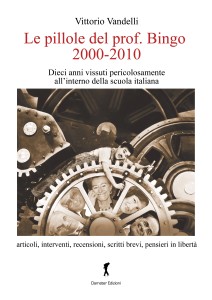
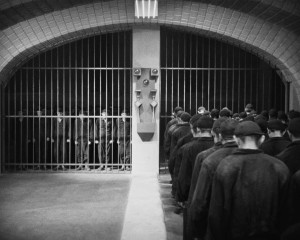






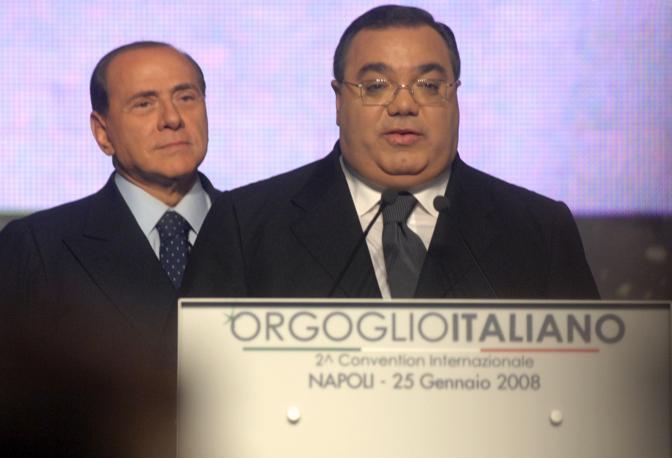


 The book "Silvio Berlusconi's Italy" is
The book "Silvio Berlusconi's Italy" is 
Leave A Response